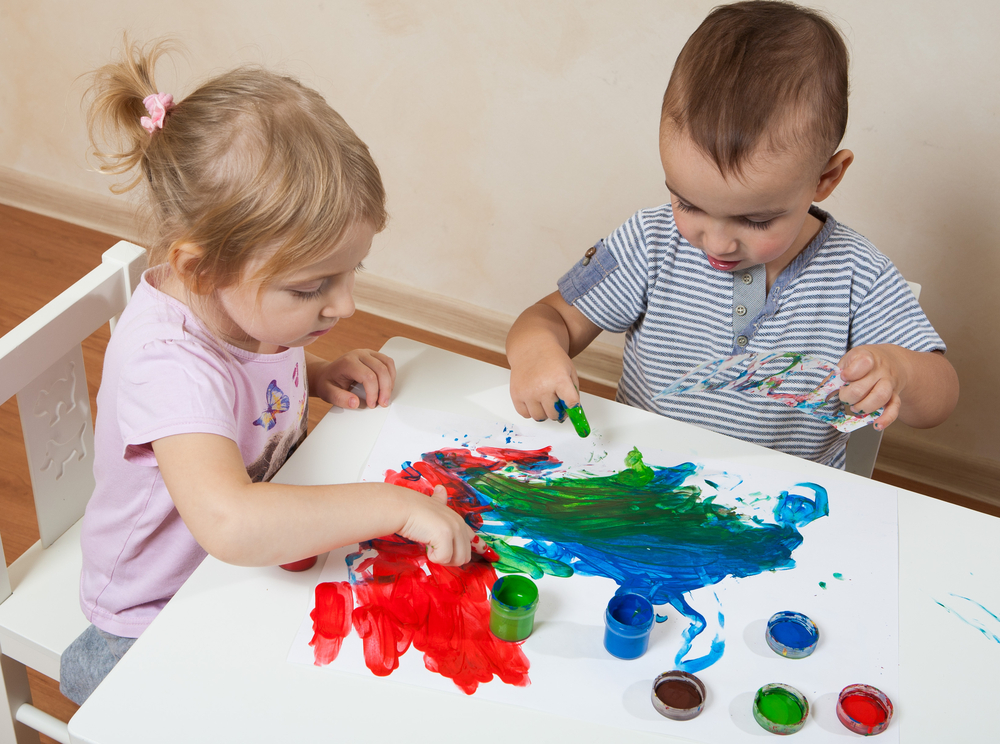Decision making practice Worksheets for Ages 4-8
5 filtered results
-
From - To
Enhance your child's critical thinking and decision-making abilities with our specially designed Decision Making Practice Worksheets for Ages 4-8. At Kids Academy, our engaging and colorful worksheets help young learners develop essential life skills such as problem-solving, understanding consequences, and making informed choices. Through a variety of fun activities, your child will build the confidence to assess situations and make decisions effectively. Perfect for both classroom and at-home practice, these worksheets lay a strong foundation for future success in real-life scenarios. Encourage your little one to think independently and make wise choices with our expertly crafted resources!
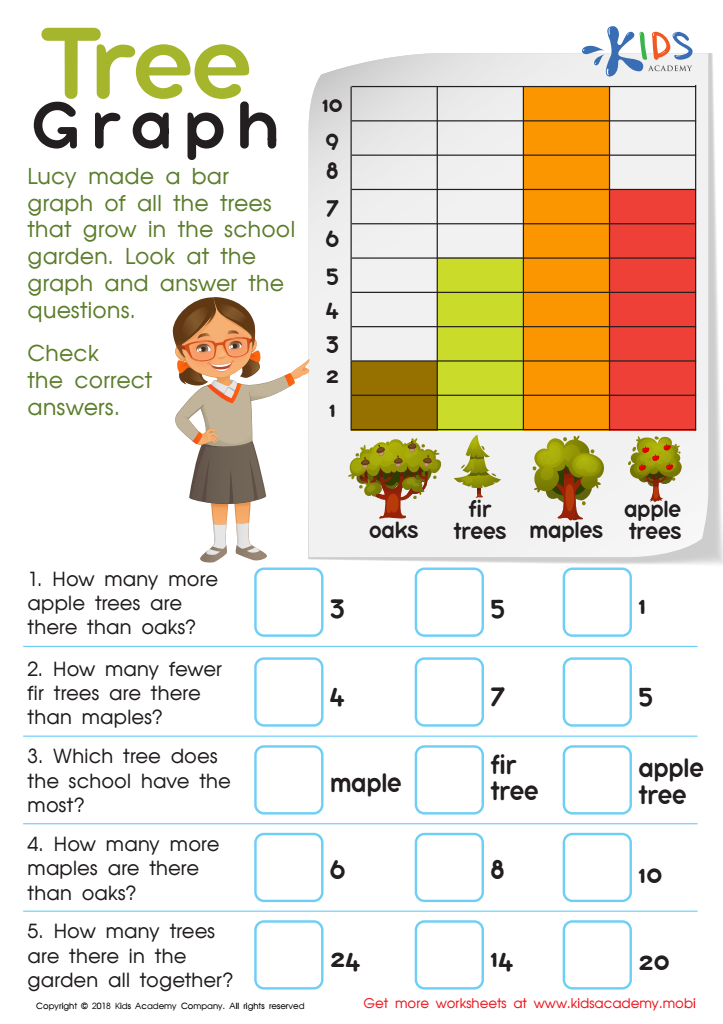

Tree Graph Worksheet
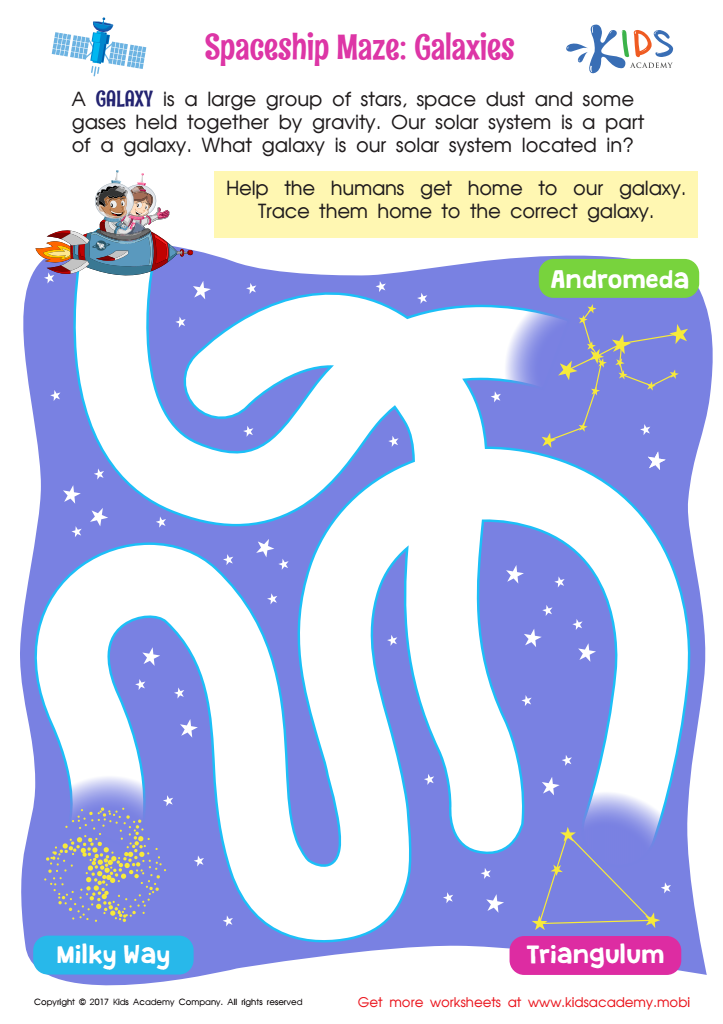

Spaceship Maze: Galaxies Worksheet
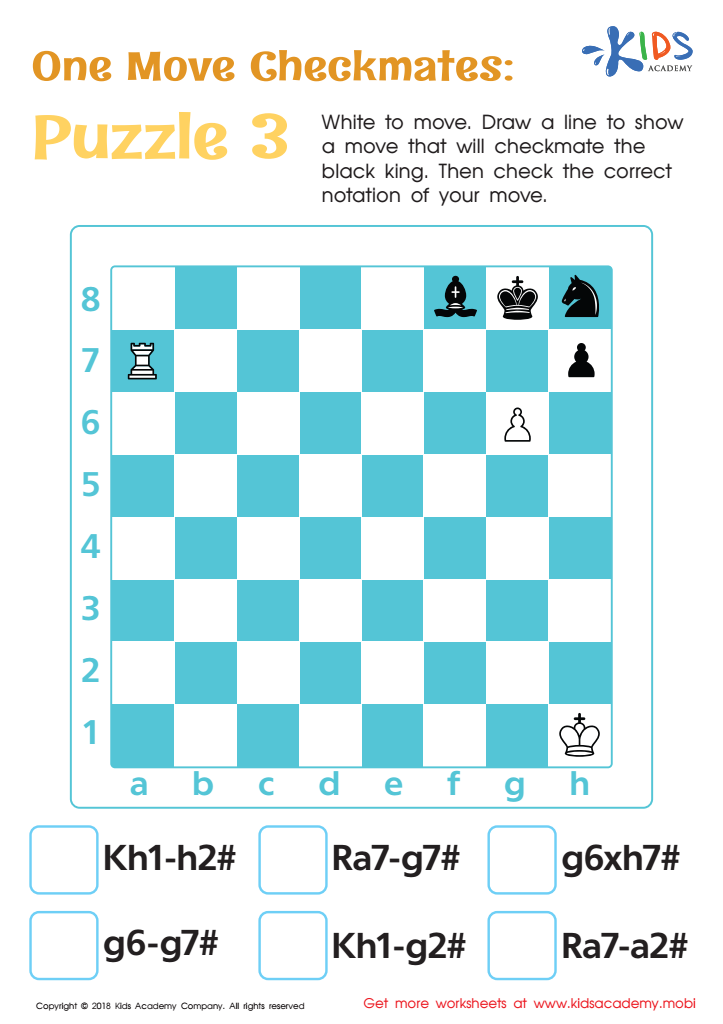

One Move Checkmates: Puzzle 3 Worksheet
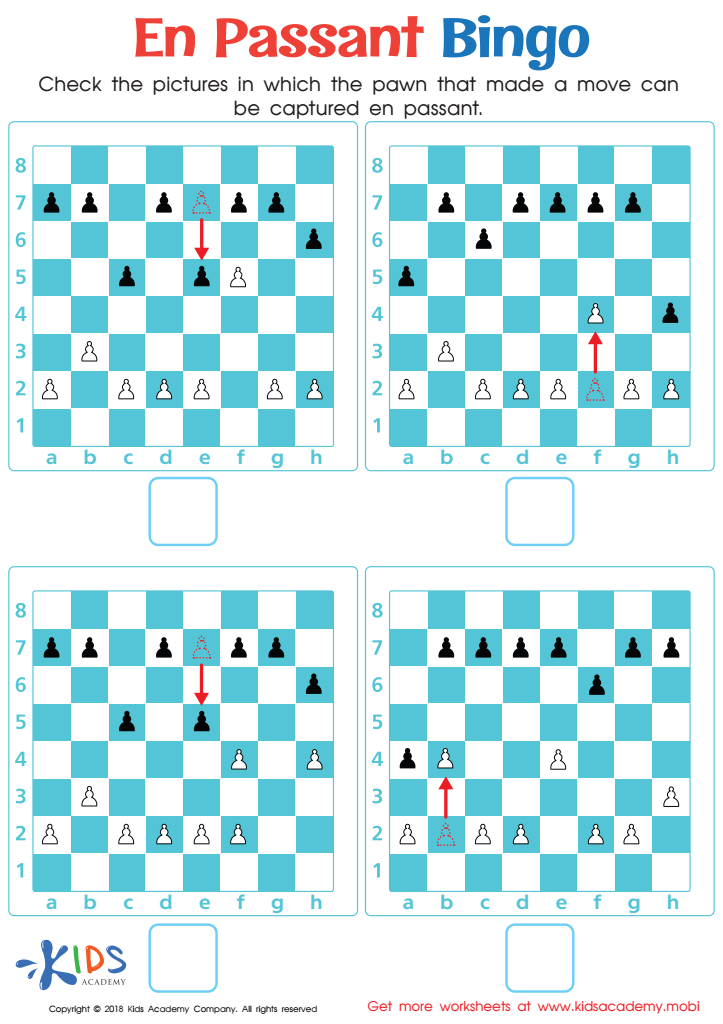

En Passant Bingo Worksheet
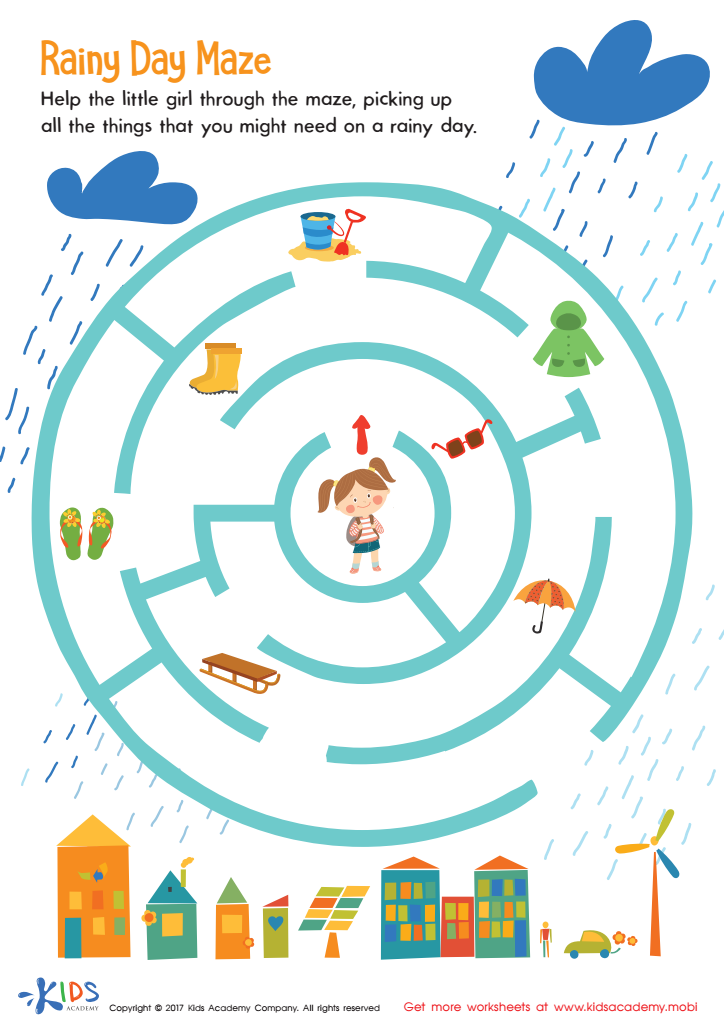

Rainy Day Maze Worksheet
Cultivating decision-making skills in children aged 4-8 is crucial because it lays a foundation for their future personal and academic success. At this age, children are beginning to understand the concepts of choices and consequences. By helping them practice decision-making, parents and teachers empower young ones to become more independent, confident, and responsible.
Firstly, good decision-making practice strengthens a child's problem-solving skills. It encourages them to think critically about their options, weigh the potential outcomes, and make informed choices. This nurtures cognitive development and helps children learn to approach problems methodically.
Secondly, fostering decision-making skills boosts self-esteem. When children have the autonomy to make choices and see the results of their decisions—whether good or bad—they gain a sense of ownership and pride. This confidence spills over into other areas of their lives, such as social interactions and academics.
Additionally, decision-making practice promotes emotional intelligence. It teaches children to consider how their choices affect themselves and others, fostering empathy and social awareness. They learn to manage their feelings and responses, which is vital for healthy relationships and emotional well-being.
In summary, early decision-making practice equips children with critical life skills that enhance their overall development, making it an essential focus for both parents and teachers.
 Assign to My Students
Assign to My Students


.jpg)

